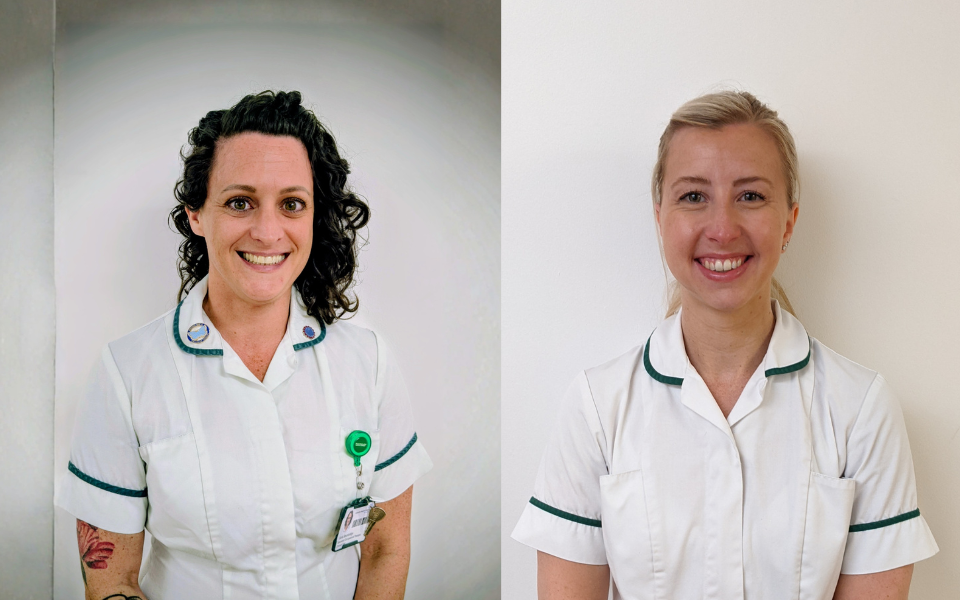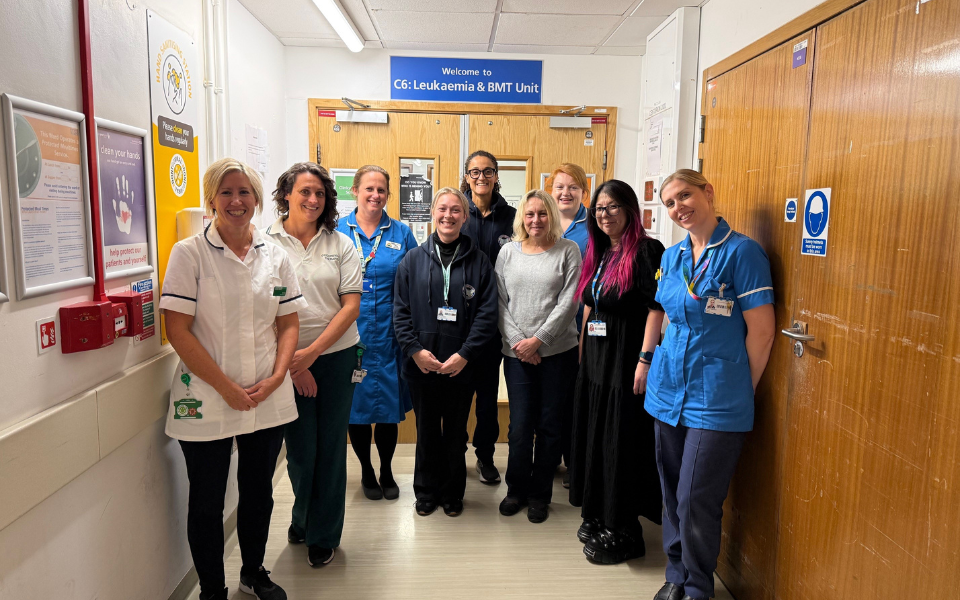
Allied health | Healthcare science | Nursing | Support services
Why Every Role Matters in Blood Cancer Care: Insights from the BMT & CT Team
Every patient’s journey through blood cancer care is unique, but none of them walk it alone. Behind each moment of progress, comfort, and hope is a team of dedicated professionals working together to make a difference.
At University Hospital Southampton’s Blood and Marrow Transplant and Cellular Therapy Unit (BMT+CT), care is a collective effort. From nurses and scientists to therapists, coordinators, and data specialists, each person plays a vital role in shaping the patient experience and driving innovation in treatment.
In this blog, our team shares what inspires them. Keep reading to discover what drives them and how they make a difference every day.
What does your role involve day-to-day, and what do you enjoy most about it?
Sara, Lead Nurse BMT & Cellular Therapy: There is a huge variety in bone marrow transplant (BMT) and cellular therapy (CT) nursing. You may be supporting a patient through complex treatment, and then working with the team to shape new services or delivering training and education for patients, families or colleagues. It can be incredibly busy and emotionally demanding, but what I enjoy most is the privilege of walking alongside patients and families at such important points in their lives.
Amy, Senior BMT & CT Clinical Nurse Specialist: My job can vary on a day-to-day basis. I work closely with patient and their families, supporting them through the complicated journey of their transplants. I am really fortunate that in my job, I get to work and support my colleagues across all our pathways in the Autologous (patient's own), CAR T-Cell therapy and Allogeneic (donor) (These are different types of cellular immunotherapies) in the inpatient and outpatient setting, along with the ambulatory pathway too.
Mei, Senior Biomedical Scientist and Flow Section Lead (Laboratory Medicine): My role is to provide an efficient service for Wessex to help diagnose/monitor blood cancers. We test blood, bone marrow and cerebrospinal fluid (CSF) samples by analysing the unique surface markers on white cells to help determine their maturity and whether they are healthy or abnormal. One of the aspects I enjoy most about the job is the close working relationship I have with Haematologists, Oncologists, Specialist Nurses and fellow scientists to ensure a gold standard service for patient testing.
Kelly, Wessex Blood and Marrow Transplant Care Co-Ordinator (Car-T Therapy): The role is extremely varied and involves supporting patients and their families throughout their complex treatment pathway and offering a point of contact across the health care system. Working closely alongside the clinical nurse specialists, we respond to unexpected changes or challenges whilst assessing patients' changing needs and acting as an advocate, ensuring their voices are heard. I enjoy being able to contribute to the effectiveness of patient care, putting their needs first and ensuring that patients and their families receive the comprehensive care they require and deserve during such important times.
Marlene, Data Manager: My day-to-day work involves collecting, managing, and reporting clinical and transplant-related data. I make sure everything is accurately recorded and submitted to national and European registries like the British Society of Blood and Marrow Transplantation and Cellular Therapy (BSBMTCT) and European Group of Blood and Marrow Transplantation (EBMT). This includes data from the patient’s diagnosis right through to their follow-up care. What I enjoy most is knowing that my work, even though it's behind the scenes, contributes to improving patient care and supports research.
Amy, Apheresis Sister: My day-to-day role focuses on completing various procedures in which blood components are either collected or exchanged. Examples of this are stem cell harvesting prior to transplant, and plasma exchange to remove antibodies from a patient's blood. We see a multitude of different patients with varying conditions, and complete procedures according to their clinical needs. We also have a 24-hour on-call service for emergency procedures, such as red cell exchange for sickle cell patients in crisis and white cell depletion for patients with newly diagnosed leukaemia. We work very closely with the patients, usually 1-2 patients at a time per member of staff. Because we work so closely with the patients, we get a chance to get to know them and build a rapport. The working relationships we get to build with patients are my favourite part of my role.
Emma, Acute Haematology Clinical Nurse Specialist: A day in the life of a CNS is never the same. We act as a patient’s key worker, treating and managing the health concerns of patients and working to promote health and wellbeing. We use our skills and expertise in cancer care to provide physical and emotional support, coordinate care services and inform and advise patients and loved ones on clinical as well as practical issues, leading to positive patient outcomes.
The most rewarding part of my role is building professional relationships with patients, families, and my colleagues. The acute haematology caseload usually involves an intensive treatment pathway for patients, so they spend a lot of time in hospital; therefore, being able to make this difficult time a bit easier for them is rewarding. I also enjoy the fact that haematology is constantly evolving with new treatments and research, offering continuous learning opportunities and a chance to work in cutting-edge medicine, so it keeps us on our toes.
Carla, Advanced Specialist Occupational Therapist and Jenny, Advanced Specialist Physiotherapist: Our day-to-day varies enormously, which is one of the things we most enjoy about our role. Ultimately, we enjoy supporting people in improving their lives and overcoming challenges. However, it’s meeting the huge variety of personalities (both patients and staff) that brings a lot of laughter and joy in our daily lives, for which we feel truly lucky.
What part of your role do you feel has the biggest impact on patients and their families, and why?
Sara, Lead Nurse BMT & Cellular Therapy: I think the biggest impact comes from being a constant, reassuring presence in what can feel like an overwhelming journey. Blood cancer treatments are tough, and patients spend long stretches in the hospital, often away from normal life. Knowing that they have a team that understands their journey and who is always there to answer questions or just listen can make a huge difference.
Marlene, Data Manager: While I don’t have direct contact with patients, the data I manage plays an essential role in the overall quality and safety of care. A key part of my job involves submitting transplant-related data to organisations like EBMT and BSBMTCT. This information is used to track patient outcomes, support audits, and contribute to research. By ensuring that the data is accurate and complete, I help the department maintain high standards and support improvements that benefit both current and future patients. That’s something I’m proud to be part of.
Emma, Acute Haematology Clinical Nurse Specialist: We do our best to personalise patient care through holistic needs assessment. By personalising care, I think it treats a patient as a person rather than another patient, which has the biggest impact on their care. Personalised care means people have choice and control over the way their care is planned and delivered. It is based on ‘what matters’ to them and their individual strengths and needs. It provides a positive shift in power and decision-making that enables people to have a voice, to be heard and be connected to each other and their communities.
Carla, Advanced Specialist Occupational Therapist and Jenny, Advanced Specialist Physiotherapist: Patients often express their appreciation of the time we spent with them. On the occasions that a full therapy review is not indicated, we may just pop in for a quick chat, which the patients really value. Knowing that they can be away from their loved ones for a significant amount of time, providing an opportunity for a conversation unrelated to their diagnosis or treatment can be invaluable to our patients.
What makes the BMT and Cellular Therapy Unit at UHS unique compared to other places you’ve worked or trained?
Amy, Senior BMT & CT Clinical Nurse Specialist: I have worked in the BMT+CT service since 2009, but having worked across the transplant unit, the day unit and now working within the CNS team, I have seen a lot of changes and development of treatments that are available to patients. Being able to work with 14 referring centres offering regional specialist treatment is very unique to our service. I am very proud to have worked for a long period of time in a service that is one of the best in Europe.
Sara, Lead Nurse BMT & Cellular Therapy: Integration of specialities and professionals in the BMT+CT team is critical. Everyone, from doctors and nurses to scientists, quality and care coordinators, pulls together to do the very best for our patients. We’re also fortunate to deliver some of the most cutting-edge treatments in the country, but we never lose sight of the human side of care. That mix of world-class science and genuine compassion is what makes the team so special.
Amy, Apheresis Sister: The BMT and cellular therapy unit at UHS is full of staff with incredible expertise in all aspects of patient care. The wealth of knowledge available is unique to any other clinical area I've worked in, something that is reflected by UHS having the best outcomes in Europe for stem cell transplant patients.
What’s something people might not know or often misunderstand about your role or about blood cancer care in general?
Kelly, Wessex Blood and Marrow Transplant Care Co-Ordinator (Car-T Therapy): The role of a care coordinator involves complex coordination beyond that of organising appointments. We are the point of contact for managing communications between patients, wards, doctors, pharmacists and many other services that are involved in the care of a patient. We try and anticipate potential issues before they arise and to problem-solve quickly to ensure a patient's care remains on track. Not only is this a role which requires organisation, but it is also a role that requires an understanding of the emotional impact on patients and families. As for blood cancer care in general, many do not realise how individualised treatment is and that patients require personalised plans based on disease, genetics and patient-specific factors. The BMT+CT journey can be long, complex, and fluid. It is a process that requires close monitoring and can be life-changing for patients.
Marlene, Data Manager: A lot of people think that data roles are purely administrative or disconnected from patient care. The information we manage plays a key part in national and European reporting, research, and ensuring the department meets standards. Without good data, we wouldn’t be able to track outcomes, identify areas for improvement, or contribute to the wider transplant community. As for blood cancer care, many people don’t realise how complex and specialised it is, with treatments like stem cell transplants and cellular therapies requiring huge coordination across multiple teams.
Amy, Apheresis Sister: People often think an apheresis nurse is only involved in the apheresis procedures, focusing on the machines and the procedures. As an apheresis nurse, we may only be physically involved with certain points of their care, but our duty of care doesn't stop when the procedure ends. We want to get the best outcomes for the patients by doing our part to the best of our abilities. We are part of the MDT and regularly follow up with the rest of the team so we can be updated regarding each patient's progress.
Emma, Acute Haematology Clinical Nurse Specialist: Before becoming a CNS, I thought that the team sat behind a desk most of the day and drank cups of tea. This was a huge misconception. I was not aware of the responsibilities that CNS’s.
We are often the first point of contact for patients, which means clinical assessment skills are essential, and coordination of care is critical in ensuring patients’ needs are met by liaising with many healthcare professionals in the community and other hospitals to ensure cohesive care.
We care for the patients from diagnosis, through their treatments, including supportive care, often leading to a cure, but sadly sometimes relapse and sometimes end-of-life care. The importance of good communication skills has been heightened as I have daily conversations that can be challenging and require a level of empathy and expertise to navigate. We are often present when a person is feeling most vulnerable, and supporting someone through this is a privilege, but it can be tough. I also remember the first time I joined a multi-disciplinary team meeting, it was like a new language, seeing the detailed scans and hearing about the genetics in cancer that help to risk-stratify disease and decide on the best treatments. Nowadays, five years later, I am still learning the language.
Carla, Advanced Specialist Occupational Therapist and Jenny, Advanced Specialist Physiotherapist: Unless people have had direct experiences with an Occupational Therapist or Physiotherapist, our roles can often be pigeonholed, with the opinion that physios assess injuries and provide exercises, whilst OT’s provide equipment for home!
In reality, we can support people in just about every aspect of their lives. This encompasses exploring strategies for people who have had changes to their physical function, which may include managing daily routines, sleep hygiene, fatigue management, and returning to hobbies and interests. The main focus is optimising quality of life, whatever this may represent for the individual.
What advice would you give to someone considering a career in blood cancer care/ BMT and Cellular Therapy, whether they’re a nurse, scientist, therapist, or coordinator?
Mei, Senior Biomedical Scientist and Flow Section Lead (Laboratory Medicine): Advice from the perspective of a scientist would be to research qualifications for the role. Take a look at the various NHS training schemes and keep up with current issues in the field. As with any job in the NHS, this job is very rewarding but demanding.
Kelly, Wessex Blood and Marrow Transplant Care Co-Ordinator (Car-T Therapy): Working within the BMT&CT team is an absolute privilege. It is both extremely rewarding and highly demanding. This is a rapidly evolving speciality on the cutting edge of medicine, so there is always something new to learn. There will be moments of success as well as moments of sadness. However, you can make a real impact and difference to a patient and their family. By being resilient and compassionate and you can make a real change to patients’ lives.
Marlene, Data Manager: My advice would be to keep an open mind and be ready to learn. This is a fast-paced department and always evolving, and whether you’re in a clinical or non-clinical role, teamwork and attention to detail are key. It can be emotionally challenging at times, but it’s also very rewarding. Knowing that your work contributes to such a vital part of someone’s treatment journey makes it all worthwhile. Every role in this field matters, and there’s a real sense of purpose in what we do.
Emma, Acute Haematology Clinical Nurse Specialist: My advice would be, go for it! Haematology provides opportunities for specialisation, which involves comprehensive patient and family support through a challenging process. There are so many opportunities for nurse-led services and professional development, and while the work can be challenging and emotionally demanding, it is also highly rewarding, allowing you to see the direct impact of your care on patients' recovery and well-being. The fast-paced nature of the field and the introduction of new treatments ensure that you will always be learning and developing your skills and knowledge. You'll work closely with a large and diverse team of colleagues, including doctors, scientists, and other healthcare professionals, fostering a supportive and collaborative environment.
Carla, Advanced Specialist Occupational Therapist and Jenny, Advanced Specialist Physiotherapist: Being a therapist working in this field is extremely rewarding. We spend a lot of time providing individualised care, getting to know our patients and focusing on what is important to them and their loved ones. Even if it’s the smallest of things that make a big impact, we can honestly say we have made a positive contribution to what can be the most difficult time in their lives. If you have compassion and empathy, and a passion for people, this could be a role for you.
Throughout these reflections, one thing is clear: this is a team driven by compassion, collaboration, and a shared commitment to putting patients first. Whether supporting someone through a life-changing diagnosis, delivering cutting-edge treatments, or simply being a reassuring presence, every member of the team plays a vital role. Their words reflect not just what they do but why they do it.
If you’re inspired by the idea of making a real impact and being part of a team that values compassion as much as expertise. We invite you to explore our careers website. Click here to discover how your skills, your passion, and your perspective could help shape the future of blood cancer care.
Related Blogs
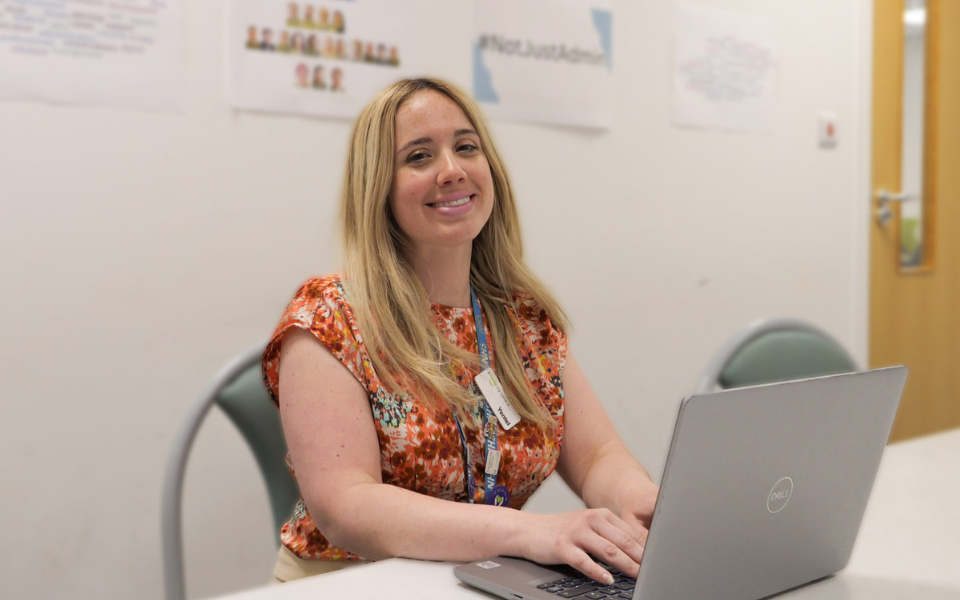
From Sports Coach to NHS Innovator: How Yentel Found Purpose at UHS
More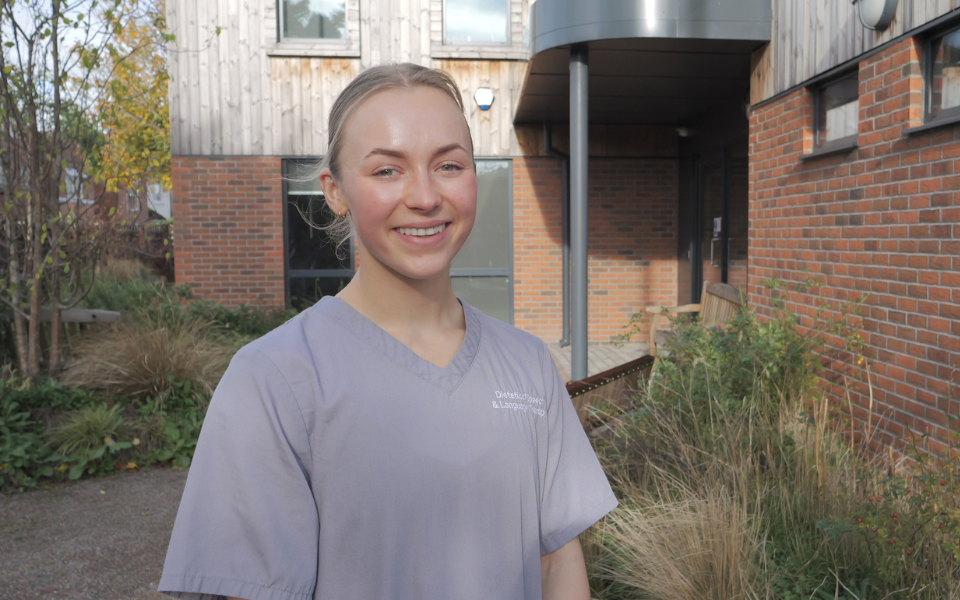
Supporting Newly Qualified Professionals: The Impact of Preceptorship at UHS – Goda’s Story
More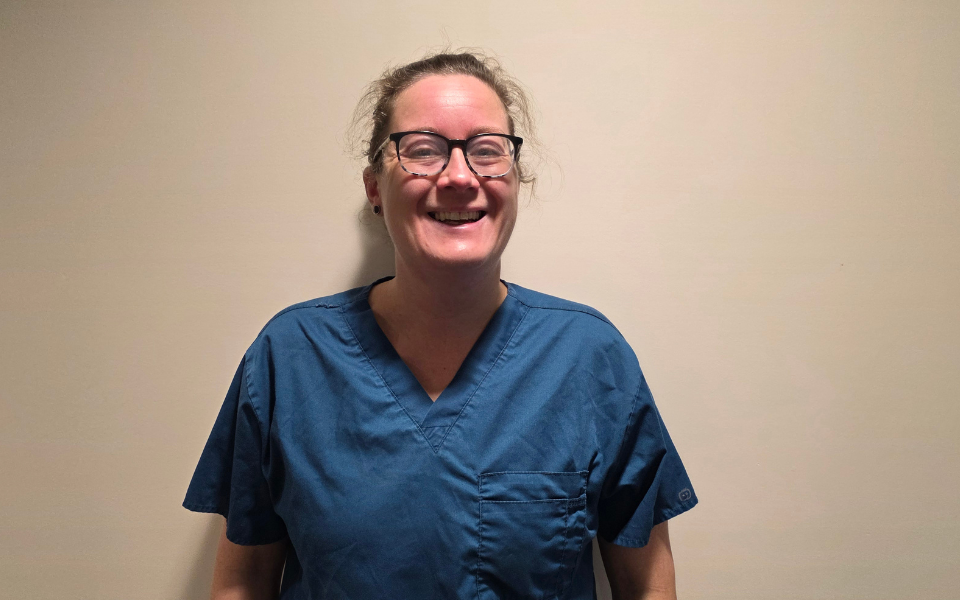
From Childhood Dream to NHS Specialist: Lizzi’s Journey in Pharmacy
More